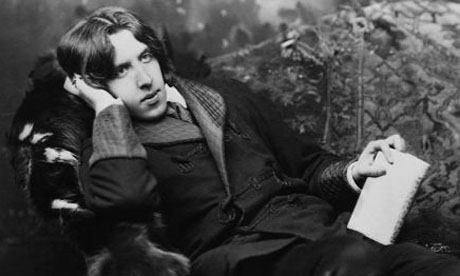
During the last months of his imprisonment, Oscar Wilde was permitted to exercise his craft as a writer. A folio sheet of blue prison paper was doled out to him and when filled was taken away and replaced with another. In this unique way, he composed a masterly manuscript of more than 50,000 words, containing very few alterations and never thereafter revised.
In 1905, less than half of the work was published under the name of De Profundis. These extracts were made by Robert Ross, Wilde's loyal and literary executor, who necessarily omitted everything which had reference to Lord Alfred Douglas. For the hitherto unpublished part of De Profundis is a comprehensive indictment of Douglas and an intimate survey and scenario of his association with Wilde, vivid, dramatic, and poignantly convincing. Wilde strikes the key note when he says: "I discern in all our relations not Destiny merely, but Doom… I feel sometimes as if you had been merely a puppet worked by some secret and unseen hand to bring terrible events to a terrible issue."
It had never been natural to [Wilde] to go into things profoundly. His temperament was volatile and gay. He must now try to reach the ultimate essence of his soul. The attempt is made with courage and graceful eloquence.
The period he has recapitulated began with a weekend visit to Oxford, to stay with a decadent and admiring undergraduate, already fatally qualified to sit for a second Picture of Dorian Gray. It ended with a discreet retirement, to a villa near Naples, by the young gentleman who had introduced him to those ornaments of the underworld whose evidence had been mainly instrumental in obtaining his conviction at the Old Bailey. It also conducted him, handcuffed, to the Bankruptcy Court, where he had to go over every item of his expenditure.
Between October 1892 and his arrest he had spent more than £5,000 with, and on, Douglas, who demanded without grace, received without thanks and insisted that all his pleasures should be paid for by Wilde, whether he was with him or not. "Often in the old days I told you that you were ruining my life. You always laughed… you laughed immoderately when, on the occasion of your father writing his first abusive letter to you about me, I told you that I knew I would be a mere cat's-paw of your dreadful quarrel and come to some evil between you." Such was Lord Alfred's sense of humour.
In Reading Gaol he had a mind clarified by penal abstinence and a spirit that sought – how strange that he should have come to this – the meaning of sorrow and beauty. The florid and frivolous aesthete, the fashionably acclaimed author of brilliant comedies, the incomparably charming conversationalist and raconteur of genius, was now a man in convict clothes in a dark cell, alone with his resolve not to defend his conduct but to explain it. And learning, one imagines him saying to himself with the ghost of a smile, the importance of being earnest.
This is an edited extract

